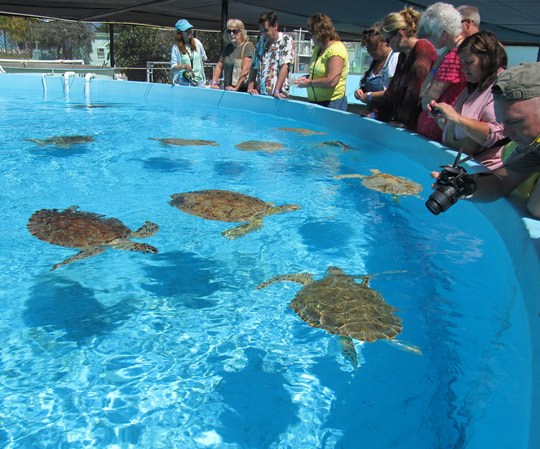Turtles wind up at the hospital for many reasons— from injuries due to boat strikes or becoming entangled in nets or monofilament fishing line, to ingesting fish hooks and plastic bags that cause intestinal blockage (trash in the water can look like jelly fish to turtles who eat almost anything). Once a turtle’s digestive tract has been impacted it will usually lead to starvation if not removed. Turtles at the hospital are first treated with very human-like remedies—a combination of Metamucil, fiber and vegetable oil. If that doesn’t work, surgery is performed to remove the blockage. Sea turtles are also prone to fibropapillomatosis, an aggressive herpes-like virus that causes tumors to grow. No one knows exactly why, but over 50% of the sea turtles in the Florida Keys and around the world are infected. Pollution is thought to be the main culprit. One of the most common reasons green sea turtles need to be rescued is because of a floating problem called “Bubble Butt Syndrome” (no kidding). Floating in the wild is not normal and can be hazardous if turtles cannot dive to escape predators or catch food. At the hospital, lead weights are attached to their shells so they can submerge. Eventually those weights fall off, but by that time if their injury or sickness has not been cured, that turtle will mostly likely become a permanent resident at the Sea Turtle Center. If they lose a flipper, they probably cannot be released back into the wild either. The Turtle Hospital has successfully treated and released over 1500 turtles since its founding in 1986, but it’s comforting to know if turtles can’t return to the sea, they have a “forever home” in Marathon, Florida. When you visit, take water and wear sunscreen, sunglasses, a hat, and a protective neck gaiter. That southern sun can be fierce every day of the year!Comments are closed.
|
RAZER GAITERS

 RSS Feed
RSS Feed
